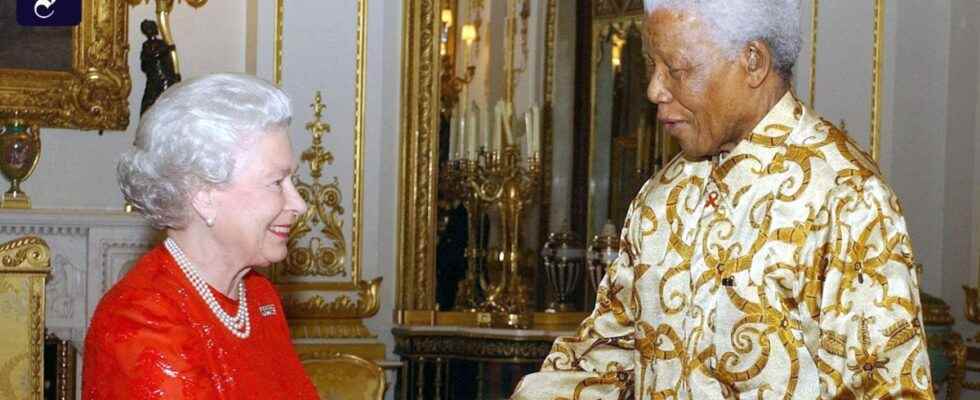AShe once went to bed in Kenya as a princess. After waking up she was queen. Elizabeth, then 25, was on safari in Kenya’s Aberdare National Park with her husband Prince Philip when she learned of the death of her father, King George VI, on February 6, 1952. The young couple wanted to observe wild animals.
As a friend of Prince Philip later reported, before dawn that day, she climbed to a vantage point in the treetops and watched an eagle soar in the sky. This was around the time of their father’s death, of which they of course had no idea several thousand kilometers away. In the wilderness of Kenya, Elisabeth and Philip found out about the death of the monarch later than most of the world public. This happened later in the day at a lodge. There, Prince Philip first learned of the death of the king and brought the sad news to his wife in the garden. A few hours later, the two traveled back to Great Britain.
As the world mourns the death of Britain’s Queen, no commentator in Kenya fails to point out that she became Queen in East Africa. The black and white film recordings of their visit at that time are shown on television again and again. Elizabeth II subsequently visited Kenya three more times: in 1972, 1983 and 1991.

Elizabeth and Prince Philip spent the night in this treetop hotel when King George VI. passed away
:
Image: dpa
Conversely, the African continent has been of particular importance to the British Queen throughout her lifetime. Elisabeth is famous for her friendship with Nelson Mandela, who was probably the only foreign head of state who was allowed to address her by her first name without a title. A few years ago, Mandela’s daughter Zindzi revealed how familiar the two were with each other. Accordingly, the former resistance fighter against apartheid and later South African queen even had a nickname for the British queen: Lizzie. She signed letters to Mandela with “Your sincere friend, Elizabeth R.”
Observers praise gestures towards former colonies
The two were similarly masters of quiet diplomacy. A year after Mandela was elected President, the Queen traveled to Cape Town. The visit was seen as an important symbol of a new beginning and South Africa’s acceptance into the international community after apartheid. Observers praised the queen for being adept at making such visits and gestures towards the former colonies. The African National Congress (ANC), which had risen to become the ruling party, gave her a warm welcome, although they had previously fought vehemently against white supremacy. Mandela in particular repeatedly showed his appreciation and respect for the Queen, who had invited him to a Commonwealth meeting three years before his presidency as South Africa’s representative. In an unobtrusive manner, the South African statesman also made it clear that sovereign and democratic South Africa is now on an equal footing with the former colonial power.
Countless expressions of condolence arrived from Africa on Friday. South Africa’s current President Cyril Ramaphosa described the British Queen as an “extraordinary and world-renowned figure with a remarkable life”. Her commitment and dedication throughout her long reign set an example for the whole world. He recalled an encounter at the last Commonwealth meeting in London in 2018. There they would have spent some time together reading letters from Mandela to her. The Anglican Archbishop of Cape Town, Thabo Makgoba, recounted a reception ten years earlier at Buckingham Palace in 2008 when he stood next to the Queen and greeted guests. “She had an anecdote for everyone about their home country. ‘Oh South Africa. O Burundi’. Her knowledge of detail was amazing and her effort to approach each individual.” In Kenya, the winner of the recent presidential election, William Ruto, said he “missed the warm relations she had with Kenya”.
However, others continue to regard the Queen as a representative of the British colonial era in Africa. South Africa’s radical opposition Economic Freedom Fighters (EFF) party wrote that it sees the Queen as the leader of an institution born of, and continuing to benefit from, the brutal oppression of millions of people around the world. “We do not mourn because for us her death is a reminder of a very tragic time in the history of South Africa and Africa.”
The Treetops Hotel in Kenya, where the future Queen and Prince Philip spent the night in 1952, is now world famous. Two years after their departure, the treehouse-like structure burned down during a rebel uprising, but was later rebuilt to be larger and more modern. This year, however, the news came that the hotel had to finally close its doors as a result of the corona pandemic. Jim Corbett, a companion, once wrote in the hotel’s guest book: “For the first time in the history of the world a young girl climbed up a tree one day as a princess and came down the next day as a queen, after having her most exciting experience had.” This place is now also history.
